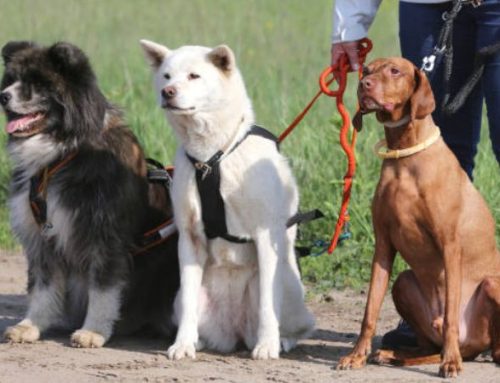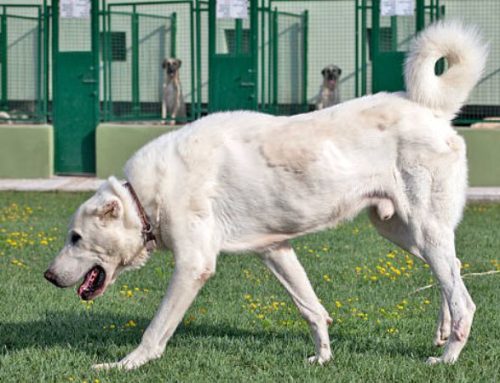Dachshunds are charming dogs with distinctive long bodies and vibrant personalities. If you’re thinking about bringing one into your home, it’s important to know the different sizes and coat types, typical price ranges, and what caring for a Dachshund involves. This guide will help you find the right puppy and prepare for the joys and responsibilities of owning this unique breed.

Where to Find Dachshunds for Sale
1. Reputable Breeders
The best way to get a healthy, well-tempered Dachshund is through a reputable breeder. Responsible breeders prioritize the health and genetics of their dogs, screening for hereditary conditions like intervertebral disc disease (IVDD) and ensuring puppies are vaccinated before going to their new homes. They are often registered with recognized organizations such as The Kennel Club (KC). Visiting the breeder’s facility lets you see the living conditions and meet the puppy’s parents, which gives insight into temperament and health.
2. Adoption Options
If you’re open to adopting, many shelters and rescue groups specialize in Dachshunds or small breeds. These organizations care for abandoned or surrendered dogs, providing medical checks and temperament assessments before placing them in loving homes. Adopting not only saves a life but usually comes with support and advice for your new pet’s care. You can find these groups online or contact local animal welfare centers.
3. Online Marketplaces
Buying a Dachshund through online classifieds is common, but you need to be cautious. While many sellers are legitimate, there are scammers and poorly run breeders out there. Always ask for health records, proof of registration, and photos of both the puppy and its parents. Avoid deals that seem too good to be true or sellers unwilling to provide full information or allow visits. Stick to trusted websites that offer some buyer protection.
4. Pet Stores
Pet shops are generally not recommended for purchasing Dachshunds. Puppies sold here often come from large-scale breeding operations known as puppy mills, where animal welfare is compromised to maximize profits. This can lead to health and behavioral issues. For these reasons, it’s better to avoid pet stores and choose reputable breeders or adoption instead.

Dachshund Price Guide
When considering adding a Dachshund to your family, it’s important to understand the costs involved so you can plan accordingly.
Typical Price Range from Breeders
Dachshund puppies from reputable breeders usually cost between $800 and $2,000 in the United States. Miniature Dachshunds are often priced on the lower end, while puppies from champion bloodlines, rare coat types such as wire-haired or dapple, or with unique markings can be significantly more expensive.
Factors That Affect Price
Several key factors influence how much a Dachshund puppy will cost:
- Lineage: Puppies from show-quality or champion parents tend to carry a higher price due to their superior genetics and the breeder’s investment in health and temperament.
- Coat Type: Wire-haired and long-haired Dachshunds are less common and often cost more than the smooth-coated variety.
- Gender: Sometimes breeders price males and females differently, depending on demand or breeding plans.
- Breeder Reputation: Well-established, licensed breeders who follow health testing and ethical breeding practices typically charge more but provide healthier, well-socialized puppies.
Adoption Costs from Shelters or Rescues
Adopting a Dachshund from a shelter or rescue group is generally less expensive, with adoption fees usually ranging from $150 to $500. These fees often cover essential medical care such as vaccinations, microchipping, and spaying or neutering. Choosing adoption not only saves money but also gives a loving home to a dog in need.
Additional Costs to Consider
Beyond the initial price of your puppy or adopted dog, you should expect additional expenses, including:
- Vaccinations: While many puppies come with initial vaccinations, booster shots and annual vaccines are necessary.
- Microchipping: Often included but sometimes may require additional registration fees.
- Spaying/Neutering: If not done prior to purchase or adoption, this can cost several hundred dollars and is important for your dog’s health.
- Ongoing Care: Regular vet visits, quality food, grooming, training, insurance, and unexpected medical expenses should all be factored into your budget.
By having a clear picture of these costs, you’ll be better prepared to provide a happy and healthy life for your Dachshund.

What to Expect When Buying a Dachshund
Make a safe, comfortable space free of hazards for your Dachshund puppy. Puppy-proofing is important as they are curious and active.
- Initial Health Checks and Vaccinations: Schedule a vet visit soon after bringing your puppy home. Ensure they receive core vaccinations, deworming, flea and tick prevention, and microchipping.
- Training Basics and Socialization Tips: Start training early with simple commands using positive reinforcement. Socialize your puppy gradually with people, animals, and new environments to build confidence.
- Common Challenges Specific to Dachshunds: Dachshunds are prone to back problems due to their long spine. Avoid activities that stress their back, like jumping from heights. Their stubborn nature requires patience and consistent training.
Grooming depends on coat type. Smooth coats need weekly brushing; long and wire-haired require more frequent care. Don’t forget regular nail trims, ear cleaning, and dental hygiene.
Tips for Success with Your New Dachshund

Diet and Nutrition
Providing a balanced, high-quality diet is essential for your Dachshund’s health. Choose dog food formulated for small breeds with proper protein and nutrient levels. Including omega fatty acids supports a healthy coat and skin, while maintaining an ideal weight helps protect their long backs from strain. Avoid overfeeding to reduce the risk of obesity, which is common in Dachshunds and can lead to serious spinal issues.
Exercise Requirements
Dachshunds need daily exercise to burn off energy and stay fit but should avoid strenuous or high-impact activities that could harm their spine. Short walks, gentle play sessions, and supervised exploration are ideal. Aim for about 30 to 60 minutes of exercise per day, broken into manageable segments to keep them engaged without overexertion.
Regular Vet Check-ups and Preventive Care
Routine veterinary visits are vital to monitor your Dachshund’s overall health. Early screening for breed-specific issues like intervertebral disc disease (IVDD) can help catch problems before they become severe. Keep up with vaccinations, flea and worm treatments, dental care, and spaying or neutering. Prompt attention to any signs of discomfort or mobility problems can improve quality of life.
Importance of Mental Stimulation and Affection
Dachshunds are intelligent, curious dogs that thrive on mental challenges and social interaction. Engage your pup with training sessions, puzzle toys, and socialization with other dogs and people. Positive reinforcement training builds trust and curbs stubborn behavior. Don’t forget plenty of love and affection—Dachshunds form strong bonds with their owners and need consistent companionship to feel secure and happy.
Bringing a Dachshund into your home is a rewarding experience. By doing your research, you can find a healthy and happy Dachshund puppy from a reputable breeder. While the Dachshund price can vary, remember that the initial cost is just one part of the journey. The real reward is the companionship and joy these little dogs bring to your life.






